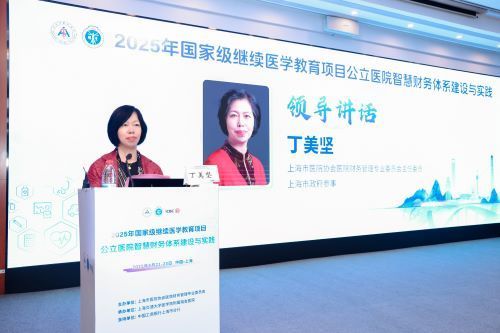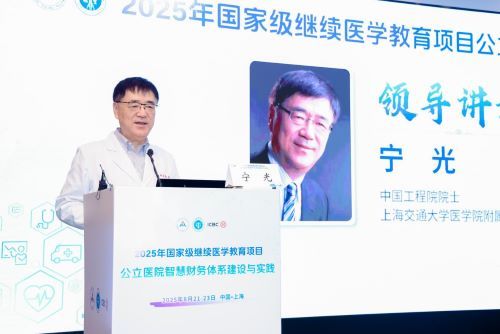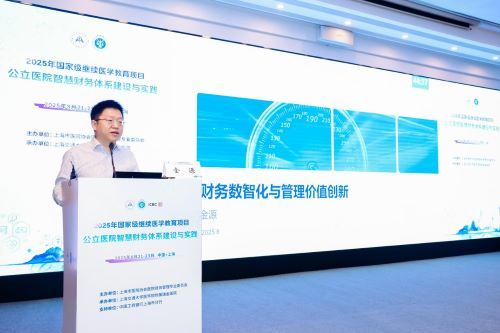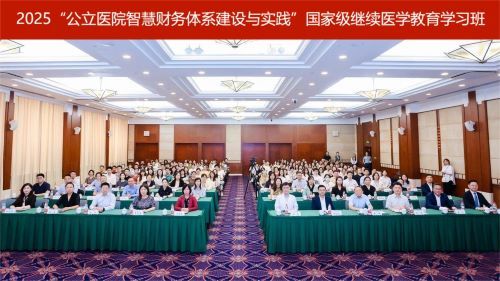The “Smart Financial System Construction and Practice in Public Hospitals” National Continuing Medical Education Training Program was successfully held at Ruijin Hospital affiliated with Shanghai Jiao Tong University School of Medicine.
(Event scene)
This training program was hosted by the Hospital Financial Management Professional Committee of the Shanghai Hospital Association and organized by Ruijin Hospital affiliated with Shanghai Jiao Tong University School of Medicine. It focused on the policy direction, technological implementation, and practical innovation of smart financial system construction in public hospitals. It brought together leaders from health administrative departments, experts in hospital finance and operational management, professionals from financial technology and information technology fields, and attracted more than 270 participants from various levels of public hospitals across 16 provinces and cities, providing a high-level exchange platform to address industry management challenges and promote financial digital transformation.

During the opening speech, it was pointed out that against the backdrop of a “tight balance” in fiscal conditions, traditional financial management models can no longer meet current demands. Building smart financial systems has become an inevitable choice to enhance economic management levels. Public hospitals are accelerating the construction of smart financial systems, forming a dual-core work system centered on “comprehensive budget management and effective cost control.” In terms of comprehensive budget management, hospitals at all levels strictly implement the requirement to “tighten spending,” building a system of “scientific planning—strengthened execution—closed-loop assessment.” By scientifically developing full-caliber budget indicators, optimizing resource allocation, ensuring investment in key areas, and strengthening integrated business-finance supervision and execution, the rigid constraint role of budgets and the overall effectiveness of hospital economic management are significantly improved through the assessment index system for hospital directors and chief accountants. In terms of effective cost control, represented by the Shanghai Shenkang Hospital Development Center, systematic management guidelines and unified indicator standards have been established to promote regular cost monitoring and analysis. In 2024, multiple efficiency-related cost indicators in Shanghai municipal public hospitals showed significant declines, with continuous improvement in resource utilization efficiency. It was also emphasized that digital intelligence technologies are the core support for reshaping the financial models of public hospitals. Technologies such as AI and big data are deeply penetrating the entire financial management process, and many replicable practical cases have emerged in hospitals nationwide. Participants were encouraged to combine benchmark hospital experiences with their own realities, transforming smart financial concepts into concrete solutions to collectively advance industry management levels.

During the opening speech, from the perspective of a hospital director, the traditional challenges in the economic operations of public hospitals were addressed. It was noted that public hospitals commonly face the significant issue of “emphasizing medical care, teaching, and research while neglecting financial operations.” This stems partly from insufficient attention to hospital management and operations from various stakeholders, and partly because most hospitals’ financial management remains in the traditional functional state of “accounting核算” and “financial supervision,” failing to deeply engage in core economic operational decision-making and thus unable to effectively support high-quality development. Therefore, a collaborative development model of “proactive finance + smart finance” was advocated. “Proactive finance” requires breaking traditional functional boundaries and actively participating in core business aspects such as cash flow operations and equipment procurement evaluations, proactively predicting resource needs and potential risks. “Smart finance” relies on digital intelligence technologies to achieve dynamic budget monitoring, effective cost control, and the replacement of repetitive labor, shifting financial management from “backend recording” to “frontend empowerment,” thereby reshaping the core hub role of finance in hospital operations. Using Ruijin Hospital as an example, experiences were shared in smart budget execution, unit-based cost control,增值 of fund flow management, and efficiency improvements through technological substitution, calling on colleagues to jointly explore effective paths for smart financial systems to empower high-quality development in hospitals.
This training program invited 21 guests from healthcare administrative departments, large public hospitals, well-known enterprises, and professional magazines to deliver keynote speeches.

Under the title “Financial Digitalization and Management Value Innovation,” the path of financial digitalization was analyzed from an industry transformation perspective. It was pointed out that the financial function is transitioning from “measuring value” to “creating value,” and from “information provider” to “business enabler.” Financial digitalization needs to achieve four






